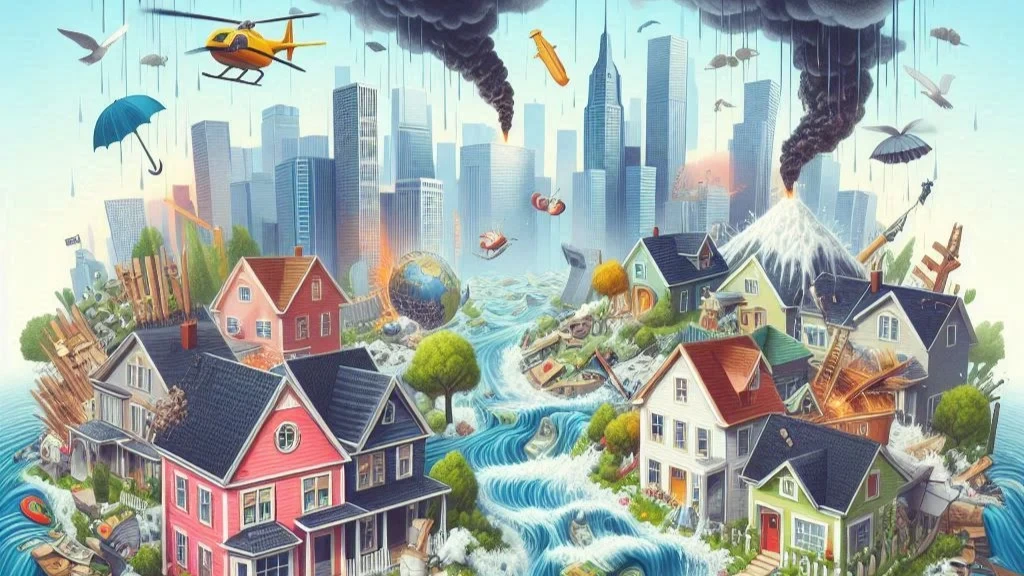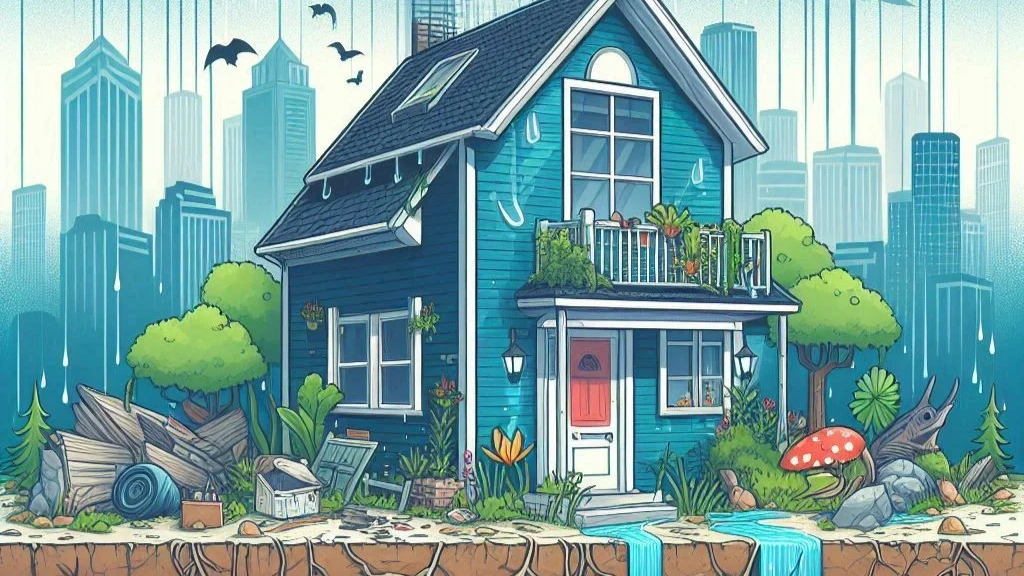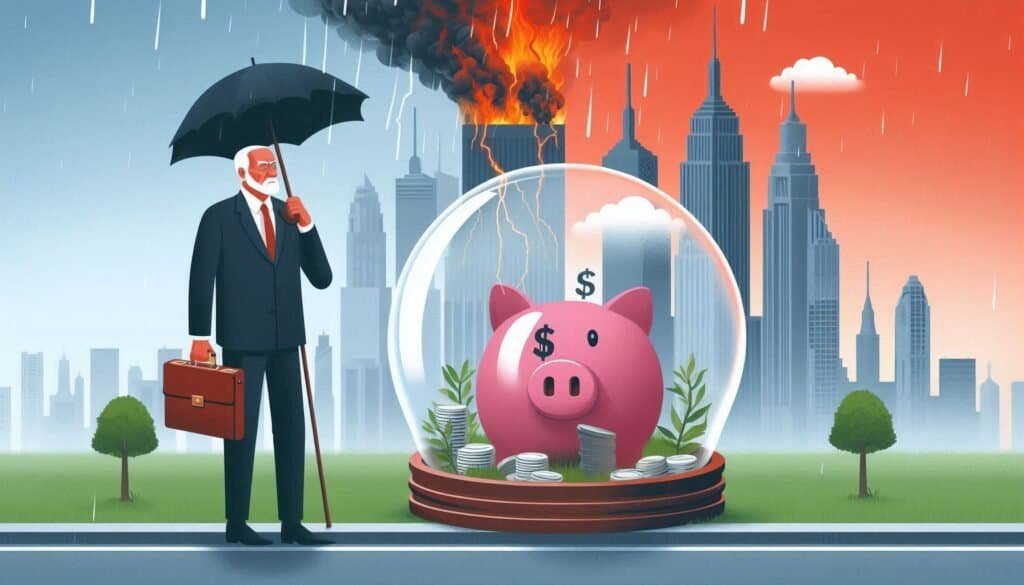Introduction:
Climate change threatens retirement savings in ways we might not immediately see, but the impact is real and growing. Rising temperatures, extreme weather, and shifting ecosystems are not just environmental headaches—they are financial ones too. For those of us planning a secure retirement, these changes can erode our nest eggs through higher costs, disrupted investments, and unexpected risks.
This article explores how a warming planet messes with our financial future, from spiking insurance premiums to crumbling infrastructure and shaky markets. We will break it down into clear, manageable pieces so you understand what is at stake and what you can do about it. Backed by solid research from trusted sources like understanding the relationships between climate change and finance from Investopedia, we are here to help you see the big picture and prepare for what is coming. Let us dive into the ways climate change is shaking up your retirement plans.
Table of Contents
Rising Insurance Costs Hit Your Wallet Hard:
One of the sneakiest ways climate change threatens retirement savings is through skyrocketing insurance premiums. Storms, floods, and wildfires are happening more often and with greater intensity. Insurers are responding by jacking up rates, especially in high-risk areas like coastal towns or wildfire-prone regions. If you are retired and living on a fixed income, these higher costs can eat into your savings fast.
Think about homeowners’ insurance. Properties that once seemed safe are now in danger zones, forcing you to pay more to protect them. Even renters are not off the hook—landlords pass those rising costs down through higher rents. Climate change threatens retirement savings by making basic protection unaffordable, leaving less cash for everyday needs. Check out options like natural disaster insurance protection to see how coverage is adapting to these risks. It is a wake-up call to rethink where your money goes in retirement.

Extreme Weather Damages Property and Drains Funds:
Let us talk about what happens when a hurricane or flood hits your home. Extreme weather events, fueled by climate change, are trashing properties left and right. Rebuilding or repairing takes a huge chunk of cash—money you might have earmarked for travel or healthcare in retirement. Climate change threatens retirement savings by turning your house into a financial liability instead of an asset.
Even if you have insurance, deductibles and uncovered losses can add up. And if your area gets hit repeatedly, insurers might drop coverage altogether, leaving you scrambling. Smaller disasters, like heatwaves frying your AC unit, also nickel-and-dime your savings. It is not just about losing stuff; it is about the constant drain on your resources. We need to factor these risks into our retirement planning now, before the next storm rolls in.
Investment Portfolios Take a Climate Beating:
Your retirement savings are not just sitting in a bank—they are likely tied up in stocks, bonds, and mutual funds. Climate change threatens retirement savings by shaking up these investments. Companies in fossil fuels, agriculture, or real estate are getting hammered as regulations tighten and weather patterns shift. If your portfolio leans on these sectors, you could see serious losses.
On the flip side, green tech and renewable energy might sound promising, but they are volatile too. Transitioning to a low-carbon economy is messy, and not every “sustainable” investment pays off. Plus, global markets get jittery when climate disasters strike, dragging down even unrelated stocks. We have got to keep an eye on how climate change threatens retirement savings through these financial rollercoasters and adjust our strategies accordingly.
Healthcare Costs Climb with a Warming Planet:
Here is something we do not always connect: climate change threatens retirement savings by driving up healthcare expenses. Heatwaves, air pollution, and spreading diseases like Lyme or malaria are all linked to a warming world. For retirees, who often deal with chronic conditions, this means more doctor visits, meds, and maybe even hospital stays.
Poor air quality from wildfires or industrial emissions can worsen asthma or heart issues. Warmer climates also let bugs like mosquitoes thrive, bringing new health risks to areas that never had them before. All this adds up, pulling money from your savings when you least expect it. Pair this with rising premiums—check out health insurance plans to choose the right one—and you see how climate change threatens retirement savings on the health front. It is a double whammy we cannot ignore.

Infrastructure Crumbles, and You Foot the Bill:
Roads, bridges, and power grids are not built for the climate we have got now. Floods wash out highways, heat buckles rail lines, and storms knock out electricity for days. Climate change threatens retirement savings because fixing this stuff costs a fortune—and guess who pays? Taxes go up, utility bills climb, and local governments lean on residents to cover the gaps.
If you are retired, these extra expenses hit harder. A busted water main or a power outage might force you to dip into savings for repairs or temporary fixes. And if you live in a vulnerable spot, relocation might even be on the table—another massive hit to your funds. We are all in this together, but the financial strain of failing infrastructure is a real threat to your retirement security.
Food and Living Costs Soar as Supplies Falter:
Ever notice grocery prices creeping up? Climate change threatens retirement savings by messing with food production. Droughts, floods, and heatwaves are cutting crop yields, making basics like bread, meat, and veggies pricier. For retirees on a budget, this squeezes your savings as you try to keep the pantry stocked.
It is not just food—energy costs rise too as climate shifts strain power grids and fossil fuel supplies. Your utility bills could jump, especially during extreme weather when you are cranking the heat or AC. Everyday living gets more expensive, and that nest egg you worked so hard for starts shrinking faster than you planned. We need to think about how climate change threatens retirement savings through these daily hits and plan smarter for the long haul.

Job Markets Shift, Affecting Pre-Retirement Savings:
If you are still working toward retirement, climate change threatens retirement savings even before you clock out for good. Industries like agriculture, tourism, and manufacturing are taking a hit as weather patterns change. Jobs dry up in some areas, while others demand skills you might not have. Less income now means less to sock away for later.
Even if you are safe, your kids or grandkids might lean on you more if their careers stumble. The ripple effects are real. Building that retirement cushion gets tougher when climate change shakes up the economy. Look into financial freedom in retirement tips to see how to protect your savings despite these shifts. We have got to stay flexible and proactive here.
Conclusion:
We have walked through a lot—how climate change threatens retirement savings through pricier insurance, wrecked homes, shaky investments, health woes, crumbling infrastructure, rising living costs, and job market chaos. It is a lot to take in, but the takeaway is clear: our financial security is tangled up in this warming world. Ignoring it is not an option if we want our golden years to stay golden. Start by reviewing your insurance—maybe explore best home insurance for natural disasters—and tweak your investments to weather these changes.
Talk to a financial planner about climate risks, and keep an eye on living costs. We can adapt and protect our savings, but it starts with acting now. What steps will you take today to shield your retirement from this growing threat?
Disclaimer:
This article is meant to inform and spark thought about how climate change threatens retirement savings. It is not financial advice tailored to your personal situation. We have pulled together insights from reputable sources to give you a broad view, but markets, weather, and policies shift fast. Your retirement plan deserves a custom approach, so consider chatting with a financial advisor or insurance expert before making big moves. We are not liable for decisions based solely on this piece—use it as a starting point, not the final word. The goal here is to help you see the risks and opportunities, so you can plan smarter for what lies ahead.
Data Sources:
We leaned on solid, high-quality sources to build this article. Wikipedia provides clear breakdowns of financial concepts tied to climate risks, with high domain authority and trusted insights. The National Oceanic and Atmospheric Administration (NOAA) offered up-to-date climate data, showing how weather patterns are shifting globally—perfect for understanding real-world impacts. For insurance trends, we tapped into industry blogs like those from Allianz, a top insurer with a strong reputation across the US, UK, and EU. These sites keep spam low and credibility high, ensuring you get facts you can trust. Together, they paint a full picture of how climate change threatens retirement savings.
